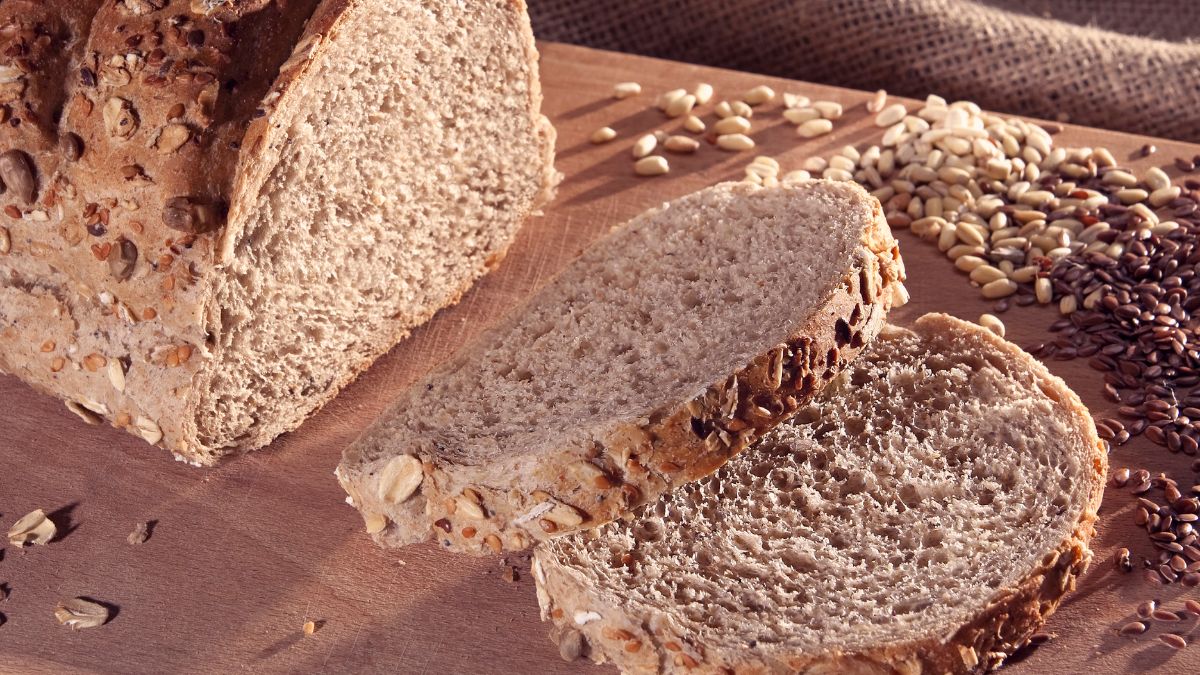- By Iram Hussain
- Tue, 24 Sep 2024 11:30 AM (IST)
- Source:JND
Bread is a staple breakfast food for many, offering versatility in various forms like sandwiches, toast and more. However, when prioritising health, the choice between white bread and whole wheat bread often sparks confusion. White bread's production involves refined flour, added preservatives and intense processing whereas whole wheat bread uses whole grains, minimal processing and slower fermentation which retains its fibre and nutrients.
Thus, this difference yields distinct textures and flavours of both breads. With their different nutrient profiles, we often get confused to choose between the two. Let's draw a comparison between the two that will help you to decide better which bread is healthier.
White Bread Vs Whole Wheat Bread
White bread falls short in dietary fibre, containing a mere 1-2 grams per slice whereas whole wheat bread boasts 3-5 grams per slice. It loses fibre and nutrients during refining, leaving mostly empty calories while whole wheat bread retains these nutrient-dense components which supports healthy digestion and satiety.
The naturally occurring substances in whole wheat bread improve heart health. Potassium lowers blood pressure while soluble fibre reduces cholesterol absorption. Antioxidants and phytochemicals combat inflammation while maintaining cardiovascular health. Magnesium and selenium regulate blood lipid profiles and folate helps maintain healthy homocysteine levels. Thus, these nutrients work synergistically to support a healthier heart.

Whole wheat bread is rich in essential natural nutrients and vitamins (Image Credits: Canva)
Whole wheat bread regulates blood sugar levels due to its complex carbohydrates, soluble fibre and slower digestion rate. This helps prevent sudden glucose spikes while reducing insulin resistance and the risk of type 2 diabetes. On the other hand, white bread's refined carbohydrates and low fibre content cause rapid glucose absorption, spiking blood sugar levels.
Whole wheat bread with a low glycemic index aids weight loss due to its higher fibre and protein content, promoting satiety and reducing cravings. Its slower digestion rate also prevents sudden energy spikes and curbs overeating whereas white bread hinders weight loss due to its refined carbohydrates, low fibre and high glycemic index that causes rapid digestion and insulin spikes.
White Bread Vs Whole Wheat Bread: Which Is More Healthy?
Whole wheat bread offers numerous advantages over white bread including increased fibre, vitamins and minerals. Nonetheless, its suitability varies based on individual dietary preferences and restrictions, such as gluten intolerance, sensitivity or low-carb lifestyles.
ALSO READ: Ghee vs Butter: Which Is A Healthier Choice For Good Cholesterol Levels And Weight Loss?
(Disclaimer: This article is for informational purposes only. It is not a substitute for professional advice, diagnosis or treatment.)

